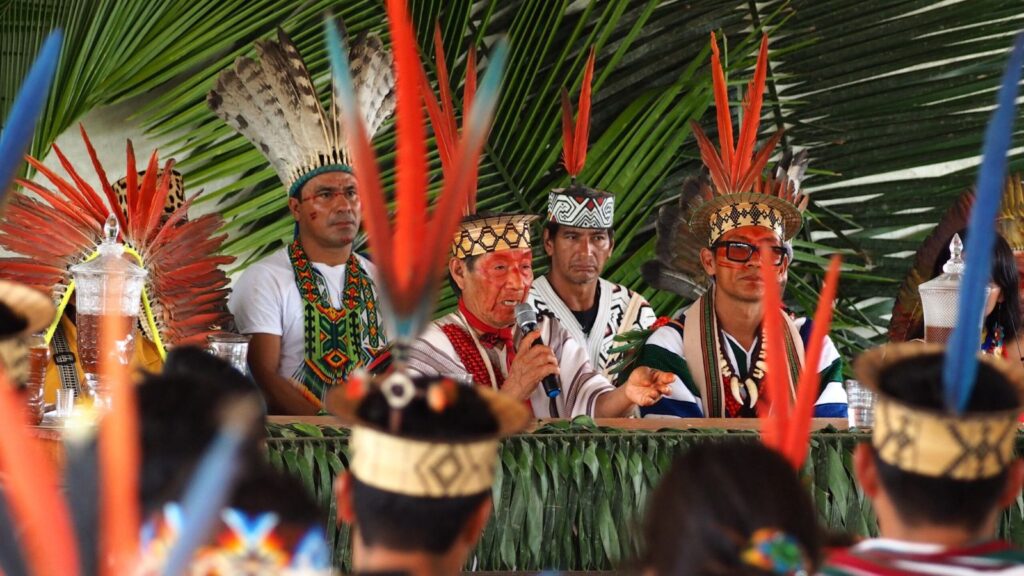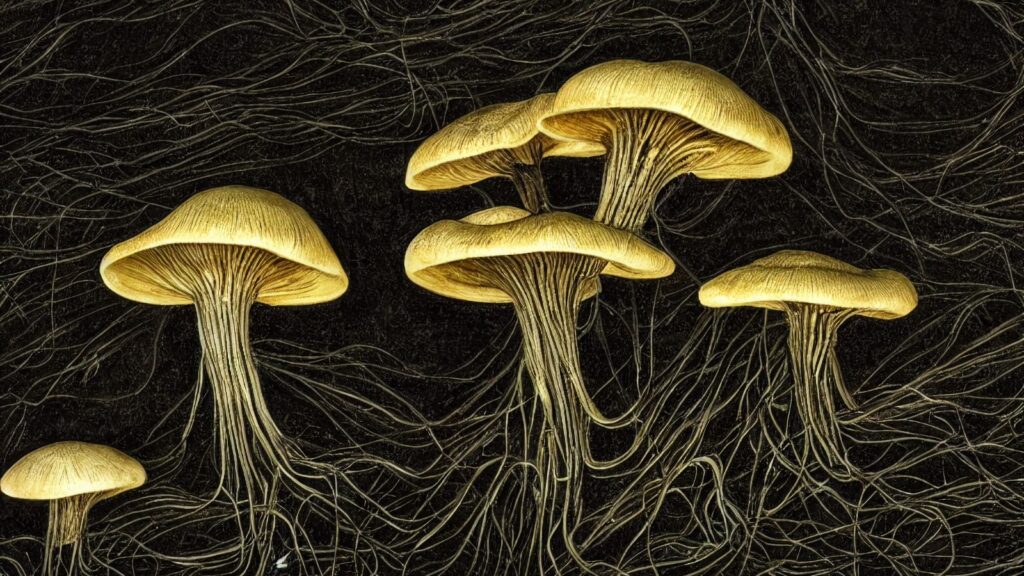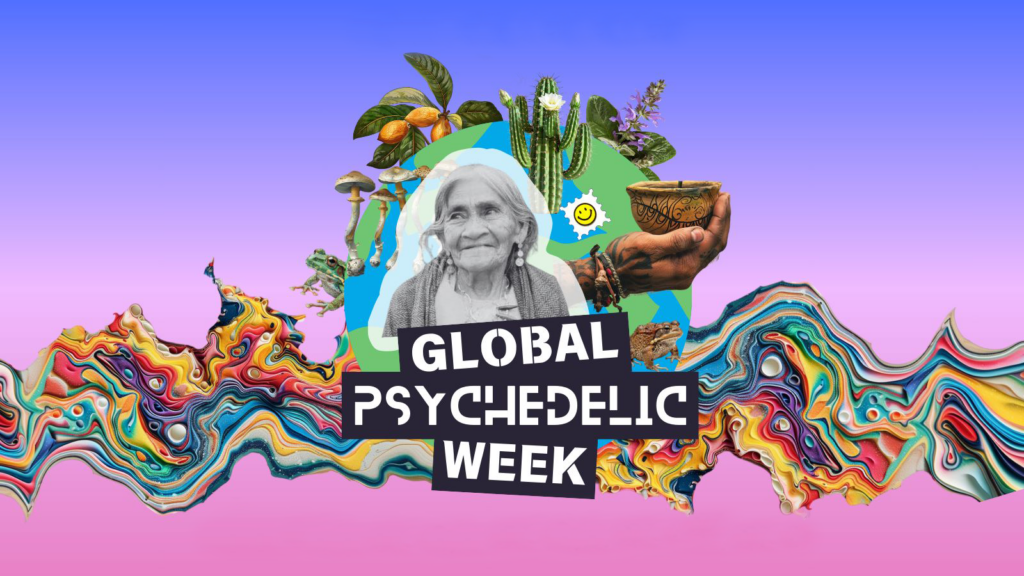The following article is from the revised and expanded edition of Pronoia is the Antidote for Paranoia: How the Whole World is Conspiring to Shower You with Blessings, recently released by North Atlantic Books. This is Part Two of a three-part series. Read Part One here, and Part Three here.
Thousands of things go right for you every single day.
Many people alive today are convinced that our civilization is in a dark age, cut off from divine favor, and on the verge of collapse. But it’s healthy to note that similar beliefs have been common throughout history.
As far back as 2800 BC, an unknown prophet wrote on an Assyrian clay tablet, “Our earth is degenerate in these latter days. There are signs that the world is speedily coming to an end.” In the seventh century BC, many Romans believed Rome would suffer a cataclysm in 634 BC.
Around 300 BC, Hindus were convinced they lived in an “unfortunate time” known as the Kali Yuga — the lowest point in the great cosmic cycle. In 426 AD, the Christian writer Augustine mourned that this evil world was in its last days. According to the Lotharingian panic-mongers who lived more than a 1,000 years ago, human life on earth would end on March 25, 970.
Astrologers in 16th-century London calculated that the city would be destroyed by a great flood on February 1, 1524. American minister William Miller proclaimed the planet’s “purification by fire” would occur in 1844. Anglican minister Michael Baxter assured his followers that the Battle of Armageddon would take place in 1868. The Jehovah’s Witnesses anticipated the End of Days in 1910, then 1914, then 1918, then 1925. John Ballou Newbrough (“America’s Greatest Prophet”) promised mass annihilation and global anarchy for 1947.
The website “A Brief History of the Apocalypse” lists over 200 visions of doom that have spilled from the hysterical imaginations of various prophets in the last two millennia.
Our age may have more of these doomsayers per capita than previous eras, although the proportion of religious extremists among them has declined as more scientists, journalists, and storytellers have taken up the singing of humanity’s predicted swan song.
In her book For the Time Being, Annie Dillard concludes, “It is a weakening and discoloring idea that rustic people knew God personally once upon a time but that it is too late for us. There never was a more holy age than ours, and never a less. There is no whit less enlightenment under the tree by your street than there was under the Buddha’s bo tree.”
I invite you to go sit under that tree by your street.
You’re hardier and healthier and smarter than your ancestors. You get sick less and you live longer.
I’m arguing against the grain, compiling evidence that the cynics’ hypothesis is a delusion. I’m insisting that we are most decidedly not pitiable actors in the most hellish chapter in history. I’m even inclined to entertain the possibility that the reverse is true: We may be living in the best of times.
Noble Prize-winning economic historian Robert Fogel is a meticulous scholar not given to hyperbole. But his work provides ample evidence that in some ways, we’re the luckiest humans of all. His landmark book is The Escape from Hunger and Premature Death, 1700-2100: Europe, America and the Third World. Its clout is rooted in his specialty, which is the painstaking quantitative analysis of the way people have lived. Some of his data is drawn, for example, from the medical records of soldiers who fought in the Civil War. Other information originates in historical documents gathered from Norway, France, Britain, the Netherlands, India, and Ghana.
According to Fogel, human biology has changed dramatically in the past three centuries, and especially in the last 100 years. People in the developed world live twice as long as they used to. They weigh more and grow taller. They’re far hardier and healthier and smarter. When sickness comes, they’re better at defeating it than their ancestors were, and they’re not as likely to contract diseases in the first place.
“We’re just not falling apart like we used to,” Fogel says. “Even our internal organs are stronger and better formed.” What has occurred is “not only unique to humankind, but unique among the 7,000 or so generations of human beings who have inhabited the earth.” (Sources: “The Human Equation,” Lydialyle Gibson, and “So Big and Healthy Grandpa Wouldn’t Even Know You,” Gina Kolata, The New York Times.)
We’re talking about a revolution. In the mid-19th century, Americans of all ages were much sicker than they are now. Child mortality was almost 25 percent, and of those kids lucky enough to survive into adolescence, 15 percent more expired before age 15. Chronic malnutrition was a horrendous curse, compromising immune systems from birth. During the Civil War, one-sixth of the teenagers who applied to serve in the Union army were rejected because of chronic ailments like malaria, tuberculosis, arthritis, cardiovascular problems, and hernias. As for the older folks, the average ex-soldier in his 60s had at least six health problems, four more than a sexagenarian is likely to have today.
What happened between then and now? First, we harnessed electricity, made it universally available, and used it in a myriad ways to improve our lot. All of the other boons I’m about to name — improvements in our diet, medicine, sanitation, and workload — were organized around this fantastic, unprophesied new resource.
Our relationship with food has changed dramatically in the last century and a half. We discovered more accurate information about our nutritional needs and gained access to a greater variety and abundance of food. The perfection of the science of refrigeration and the eventual universal availability of refrigerators made a big difference, too. Victory over widespread malnutrition meant that infants got a better start on building strong bodies, making them less susceptible to sickness throughout the course of their lives.
The drastic upgrade in the state of the human body was also made possible by steadily growing medical expertise, including the discovery of the germ theory of disease and radical new treatments like antibiotics and vaccination. Physicians got better training, large numbers of new hospitals opened, and more people made medicine their career. Among the diseases that were wiped out were diphtheria, typhoid, cholera, whooping cough, tetanus, tuberculosis, smallpox, and polio.
Innovations in sanitation have been key to the upgrades in the way our bodies work. Everything and everyone are far cleaner than they used to be. People bathe more frequently and devote more attention to their hygiene. Among the most important developments in this triumph were two practical miracles: indoor plumbing and the installation of municipal sewer systems. It took a while. As late as 1920, only one in 100 American homes had a toilet or even a bathroom — outhouses were standard — and toilet paper was a luxury. For those few with bathtubs, a full-body cleanse was often a once-a-week ritual, and entire families might use the same bathwater. Fogel says that even into the early 1900s, “Chicago exported a lot of typhoid down to St. Louis,” by disposing wastewater in the Illinois River.
Garbage disposal used to be a hit-and-miss proposition until the 20th century. Private citizens might bury their refuse in their backyards, take it to public incinerators, or offer it to pigs at local farms. But eventually, local governments took over the task. During my lifetime, every city where I’ve lived has done a stellar job of hauling my trash away.
In the middle of the 19th century, the average American worked 78 hours a week, often at exhausting manual labor and without the help of machines. As work became easier and of shorter duration, our health soared. Technological aids like washing machines and automatic heating systems also contributed to the rising tide of physical well-being.
All of the improvements I’ve mentioned have flourished because of the most important change of all: greater wealth and more available resources. Despite periodic economic downturns, per capita income in the developing nations has grown enormously in the last 150 years. Elsewhere, too: Wealth in India and China has doubled since 1989, according to The Economist magazine. As a result, more of us have been able to afford to take better care of ourselves. And more of us have been able to do the research and experimentation and development that advance the common good.
Even poor people are better off than they used to be. During the 17 years when my annual income was less than $10,000, well below the official poverty line, I had many amenities the average American didn’t have in 1900: electricity, telephone, bathtub, toilet, hot running water, refrigerator, radio, electric hotplate, space heater, TV, cassette player, shampoo, public transportation, asthma medicine, access to a laundromat, garbage collection, and sewer system.
“We either make ourselves miserable or we make ourselves happy. The amount of work is the same.” —Carlos Castañeda
Today, like most days, you awoke inside a comfortable shelter. You have a home! Your bed and pillow are soft and you have the blankets you need. The electricity is turned on, as usual. Somehow, in ways you’re barely aware of, a massive power plant at an unknown distance from your home is alchemically transforming the sun’s stored energy into currents of electricity that reach you through mostly hidden conduits in the exact amounts you need, and all you have to do to control the flow is flick small switches with your fingers.
Your home is perhaps not a million-dollar palace, but it’s sturdy and gigantic compared to the typical domicile in every culture that has preceded you. The floors aren’t crumbling, and the walls and ceilings are holding up well, too. Doors open and close without trouble, and so do the windows. What skillful geniuses built this sanctuary for you? How and where did they learn their craft?
In your bathroom, the toilet is functioning well, as are several other convenient devices. You have at your disposal soaps, creams, razors, clippers, tooth-cleaning accessories: a host of products that enhance your hygiene and appearance. You trust that unidentified researchers somewhere tested them to be sure they’re safe for you to use.
Amazingly, the water you need so much of comes out of your faucets in an even flow, with the volume you want, and either cold or hot as you desire. It’s pure and clean; you’re confident that no parasites are lurking in it. There is someone somewhere making sure these boons will continue to arrive for you without interruption for as long as you require them.
Do you have a headache this morning? Menstrual cramps? A toothache? You can quickly get relief for all of these ailments and more, either by taking medicine you’ve got on hand or by making a short trip to a nearby drug store. If your problem’s more serious than that, chances are good that a trip to a doctor or alternative health practitioner will provide some help.
The truth is, at no other time in the history of the world has there been a vaster array of healing modalities available. You may have legitimate complaints about your doctor or the cost of health care or the bureaucratic maze you have to negotiate to be treated properly, but still: How would you compare the help you can access to that of a 16th-century French peasant or an 11th-century Mayan or even the first president of the United States, whose doctors bled him to death in the cracked belief that bloodletting would cure his pneumonia? Have you had any diphtheria, typhoid, cholera, whooping cough, tetanus, tuberculosis, smallpox, malaria, or polio recently?
In your closet are many clothes you like to wear. They keep you warm and give you the chance to exhibit your sense of style. Who gathered the materials to make the fabrics they’re made of? Who imbued them with colors, and how did they do it? Who sewed them for you?
In your kitchen, appetizing food is waiting for you. Many people you’ve never met worked hard to grow it, process it, and get it to the store where you bought it. The bounty of tasty nourishment you have to choose from is unprecedented in the history of the world.
Your many appliances are working flawlessly. Despite the fact that they feed on electricity, which could kill you instantly if you touched it directly, you feel no fear that you’re in danger. Why? Your faith in the people who invented, designed, and produced these machines is impressive.
It’s as if there’s a benevolent conspiracy of unknown people that is tirelessly creating hundreds of useful things you like and need.
Have you said a prayer of gratitude any time recently for the fact that your feet remain steadily on the earth? Gravity is giving you the same gift it always does, pulling on you with neither too much nor too little force. You should be glad for its versatility, too. It’s working for the heavenly bodies with the same tender attentiveness it bestows upon you.?As all the other planets do, the Earth relies on gravity’s genius to keep orbiting the sun in its ancient hallowed groove, thereby providing you with all of the favorable environmental conditions you need to live. Magicians of the Western Hermetic tradition say that gravity is actually a form of love-the irresistible attraction that all things have for each other over even the vastest distances.
Meanwhile, a trillion other facets of nature’s ingenious design are expressing themselves as a skilled artist might. At the heart of the masterpiece are the plants. With relentless grace, they perform the everyday miracle of photosynthesis, using sunlight as a trigger to convert water and carbon dioxide into the fuel they need. If you’re like me, you feel regular surges of adoration for this complex alchemy, which pours oxygen into the air for us to breathe and ultimately provides us with all of our food.
SACRED ADVERTISEMENT: “Glory in the Highest” is brought to you by the imaginary lightning bolts you can fling from your fingers any time you want to.
If you’re honest with yourself, you’ll confess that there are few glories more sublime and more freely available than taking a walk in nature. Simply to imagine it can fill you with sacred joy. Close your eyes and visualize yourself sauntering along a wide dirt path in a meadow bordered by the woods. Feel the resilient strength of your leg muscles. Relish the freedom of swinging your arms in rhythm with your stride. The sun’s rays are so sweet you can almost taste them. The ever-shifting qualities of light and temperature resemble caresses. What’s that rustling in the bushes? Maybe a lizard or gopher informing you that you’re not alone.
At a certain point, the breeze becomes stronger. Branches of nearby trees begin to wave, unleashing a tremulous whoosh. Instinctively, your heartbeat quickens. Your flesh prickles with a reflexive alertness. But of course there’s no danger. What you’re experiencing is spontaneous excitement at the rising energy; a heightened awareness of the teeming aliveness that surrounds you.
Gaze slightly upward. Welcome in the far horizon and the sweep of the ancient sky. Give names to the clouds. Shout out praises to the birds, saluting them for being so skilled at soaring through the air. If you can see a pale slice of moon, thank it for its artistry in managing the tides.
Up ahead on the trail is a tree that wants your affection. Be empathetic. Try to remember all that it remembers, and sing a song to it as you pass. The dust and dirt deserve your kind attention, as well. Pick up a rock that catches your eye, announce to the world that it is a magic talisman, and marvel at its unique shape and heft as you roll it around in your hand.
One more gift to bestow: Under your breath, just loud enough to be heard, tell the Earth that you can hear the sound of its turning, and it’s making you giddy. Say, too, how much you love the fact that in all eternity, this moment will never be repeated. Though you may drink in the delicious atmosphere with a trillion trillion more breaths, this special dispensation of air molecules will never fill your lungs again.
To your surprise, the Earth replies to you in your native tongue, rising above the thrum of its whirling with a more familiar tone. It quotes the poem by Charles Baudelaire, as translated by Louis Simpson. “Ask the wind, the wave, the star, the bird, the clock, everything that is flying, everything that is groaning, everything that is rolling, everything that is singing, everything that is speaking … ask what time it is, and wind, wave, star, bird, clock will answer you: ‘It is time to be drunk! So as not to be the martyred slaves of time, be drunk, be continually drunk! On wine, on poetry or on virtue as you wish.'”
Do you want to go someplace that’s at a distance? You have a number of choices about what machines to use in order to get there. Whatever you decide — car, plane, bus, train, subway, ship, helicopter, or bike — you have confidence that it will work efficiently. Multitudes of people who are now dead devoted themselves to perfecting these modes of travel. Multitudes who are still alive devote themselves to ensuring that these benefits keep serving you.
Maybe you’re one of the hundreds of millions of people in the world who has the extraordinary privilege of using a car. It’s a brilliant invention made by highly competent workers. Other industrious laborers put in long hours to extract oil from the ground or sea and turn it into fuel so you can use your car conveniently. Who designed and paved the roads for you? The bridges you cross are potent feats of engineering. Do you realize how hard it was to fabricate them from scratch?
You’re aware that in the future shrinking oil reserves and global warming may impose limitations on your ability to use cars and planes and other machines to travel. But you also know that many smart and idealistic people are diligently striving to develop alternative fuels and protect the environment from the by-products generated by vehicle engines.
And compared to how slow societies have been to understand their macrocosmic problems in the past, your culture is moving with unprecedented speed to recognize and respond to the crises spawned by its technologies. Think of the predicament the Mayan people faced more than a millennium ago. As their civilization collapsed, in part because of the environmental degradation they themselves caused, they had insufficient wisdom to adjust. They were locked inside their ignorance. In contrast, we know clearly what’s happening to us, we have all the world’s knowledge available at our fingertips, and some of our best and brightest are working hard to come up with solutions.
Let’s say it’s 9:30 a.m. and you’ve been awake for two hours. A hundred things have already gone right for you. If three of those hundred things had not gone right — your toaster was broken, the hot water wasn’t hot enough, there was a stain on the jacket you wanted to wear — you might feel that today the universe is against you, that your luck is bad, that nothing’s going right.
And yet the fact is that the vast majority of everything is working with breathtaking efficiency and consistency. You would clearly be deluded to imagine that life is primarily an ordeal.
I can understand if, during the course of reading this meditation, you’ve been visited by thoughts like, “But what about all the terrible things in the world?” or “Brezsny’s totally imbalanced in his perspective!” Please know that in tallying up the profuse blessings that surround us, I’m not implying that utopia is at hand. My education and my predilection for empathy have made me acutely aware of the suffering of human beings, whether they live next door or 10,000 miles away.
But I also regard it as my fun duty to counterbalance the hordes of cynical storytellers in the media and entertainment industries who tirelessly assure us that life on Earth is a dismal hell. I think it’s smart to aggressively identify all the ways the world works for us.
I also want to suggest that it doesn’t help those who are suffering if we hate or feel guilty for our own blessings. To dwell for a few stolen minutes on the beauty and pleasures of our lives is not tantamount to ignoring all the sad and bad things.
“It is eternity now; I am in the midst of it. It is about me in the sunshine; I am in it, as the butterfly in the light-laden air. Nothing has to come; it is now. Now is eternity; now is immortal life.” –-Richard Jefferies
Copyright © 2009 by Rob Brezsny. Reprinted by permission of the publisher.
Teaser image by kevindooley, courtesy of Creative Commons license.














